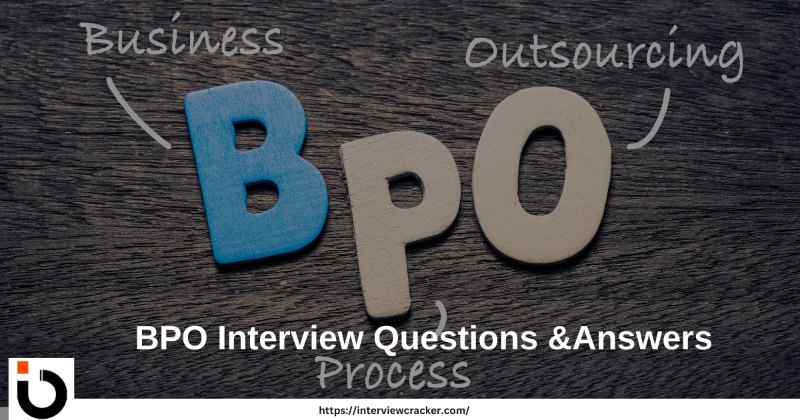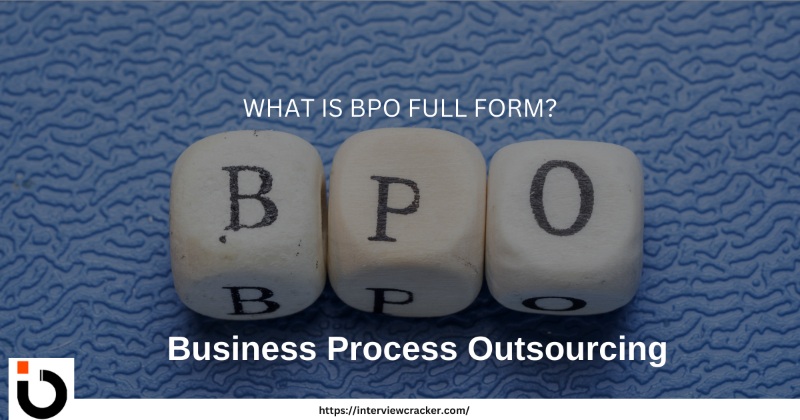What is BPO? What does BPO Mean?
The full form of BPO in English is Business Process Outsourcing.
BPO definition
BPO means Business Process Outsourcing. Business Process Outsourcing (BPO) involves leveraging third-party partners or vendors to deliver a wide range of services. BPO firms excel in sourcing talent from diverse locations and with a wide array of skills, enabling you to concentrate on your core business while they take care of tasks like recruitment and logistical aspects such as scheduling and performance management.
What Does BPO Jobs Mean?
BPO job means outsourcing specific business functions or processes to third-party service providers.
BPO jobs often require employees to handle tasks on behalf of client companies, helping them streamline their operations and reduce costs by leveraging specialized expertise and resources offered by the BPO service provider.
Sugegsted Read: Global Manpower Supply Companies
How Does BPO Work?
BPO has emerged as a solution that addresses the need of allowing businesses to focus on their core competencies while outsourcing non-core functions to specialized service providers. BPO has become a transformative business strategy that has reshaped the way companies operate and manage their resources. With the constant evolution of global markets and technological advancements, organizations are continually seeking innovative ways to streamline their processes, reduce costs, and enhance their competitive edge.
The Business Process Outsourcing (BPO) industry is experiencing significant growth, with global revenues projected to reach approximately $317.3 billion by 2025. – scoop.market.us
BPO Benefits
1. Cost Efficiency
One of the primary reasons businesses turn to BPO companies is to achieve cost savings. Outsourcing reduces the need for investing in infrastructure, technology, and manpower for non-core activities. BPO firms, often based in regions with lower labor costs, can provide high-quality services at a fraction of the cost of in-house operations.
2. Focus on Core Competencies
By delegating non-core activities to BPO providers, companies can concentrate on their primary business functions. This strategic focus allows businesses to innovate, enhance their products and services, and improve overall competitiveness.
3. Access to Global Talent
BPO companies employ skilled professionals with expertise in various fields. This access to a global talent pool ensures that businesses can leverage specialized knowledge and experience without the need for extensive training and development.
4. Scalability and Flexibility
BPO services offer scalability, allowing businesses to adjust their operations based on demand. Whether it’s scaling up during peak seasons or downsizing during slower periods, BPO companies provide the flexibility to meet changing business needs.
5. Improved Service Quality
With a focus on process optimization and performance metrics, BPO companies often deliver superior service quality. They implement best practices and utilize the latest technologies to enhance efficiency and accuracy in service delivery.
Sugegsted Read: Top 10 Global Employer of Record (EOR) Services in 2025
What are the Advantages and Disadvantages of BPO
Business Process Outsourcing (BPO) advantages and disadvantages are many which can vary depending on the specific organization and its outsourcing goals. Here’s a breakdown of both:
Advantages of BPO:
- Cost Savings: Outsourcing certain business processes to countries with lower labor costs can result in significant cost savings for companies.
- Focus on Core Competencies: BPO allows organizations to delegate non-core functions to experts, freeing up internal resources and management bandwidth to focus on core business activities.
- Access to Global Talent: Outsourcing provides access to a wide talent pool, allowing companies to leverage specialized skills and expertise that may not be available in-house.
- Scalability: BPO services can be scaled up or down quickly to accommodate changing business needs, providing flexibility in resource allocation.
- Improved Efficiency and Productivity: BPO providers often have streamlined processes and technologies, leading to improved efficiency and productivity.
- Risk Mitigation: Outsourcing can help spread business risks, as providers often have processes and systems in place to handle unforeseen challenges.
- Time Savings: Outsourcing can reduce turnaround times for tasks and processes, leading to faster delivery of products or services to customers.
Disadvantages of BPO:
- Loss of Control: Outsourcing involves handing over control of certain business functions to a third party, which can lead to concerns about quality, security, and compliance.
- Quality Concerns: Maintaining consistent quality in outsourced processes can be challenging, especially when dealing with different service providers in various locations.
- Data Security Risks: Sharing sensitive data with third-party providers can pose data security and privacy risks if not managed properly.
- Communication Barriers: Language and cultural differences between the client’s organization and the outsourcing provider can lead to miscommunication and misunderstanding.
- Hidden Costs: While cost savings are a primary driver for outsourcing, there may be hidden costs associated with transition, management, and unforeseen issues.
- Lack of Flexibility: Some BPO contracts may lock organizations into long-term agreements that limit their ability to adapt to changing circumstances.
- Negative Impact on Local Employment: Outsourcing jobs to offshore locations can harm local employment and the domestic economy.
- Potential for Service Disruptions: Dependence on a third party for critical business processes can lead to service disruptions if the provider faces issues or downtime.
In conclusion, BPO can provide significant advantages in terms of cost savings, access to specialized talent, and scalability, but it also comes with challenges related to quality, control, security, and communication. Organizations should carefully assess their specific needs and risks before deciding to engage in BPO arrangements and should maintain effective oversight of their outsourced functions to mitigate potential disadvantages.
BPO and the Evolution of Customer Service
The Business Process Outsourcing (BPO) industry has played a transformative role in the evolution of customer service, shifting from traditional call centers to tech-driven, omnichannel support systems. Initially, customer service was limited to in-house teams handling queries via phone calls, but with the rise of BPO, companies began outsourcing these functions to specialized service providers. This shift enabled businesses to offer 24/7 support, cost-effective solutions, and multilingual assistance.
Today, with advancements in AI, automation, and cloud technology, BPO-driven customer service has evolved to include chatbots, social media interactions, and predictive analytics, ensuring faster response times and personalized customer experiences.
Also Read: Career in Customer Support Jobs
Job Opportunities in the BPO Industry
The growth of the BPO industry has led to the creation of a wide range of job opportunities across the globe. These BPO jobs gives opportunities across various skill levels and encompass roles such as customer service representatives, technical support agents, data analysts, quality assurance specialists, trainers, and team managers.
For instance, customer service representatives are at the forefront of interactions with customers, addressing their queries, resolving issues, and ensuring a positive experience. These roles require strong communication skills, problem-solving abilities, and the capacity to remain calm and empathetic in challenging situations.
Technical support agents play a critical role in assisting customers with technical issues related to products or services. These professionals need to possess a solid understanding of the technical aspects of the offerings, as well as the ability to guide customers through troubleshooting processes.
Data analysts within the BPO industry focus on extracting insights from large datasets to inform business decisions and improve operational efficiency. These roles require a strong analytical mindset, proficiency in data manipulation tools, and the ability to communicate findings effectively to stakeholders.
What is BPO Salary?
BPO salaries vary significantly across countries, influenced by factors such as cost of living, economic conditions, and industry demand. Here’s an overview of average BPO salaries in five prominent countries:
United States- Average salary- $3,000 – $4,700
Canada– Average salary- $3,500 – $4,000
Australia– Average salary- $3,800 – $4,600
Philippines– Average salary- $400 – $600
India– Average salary- $300 – $500
What is BPO Call Center Interview?
A BPO (Business Process Outsourcing) Call Center Interview is a job interview specifically conducted for positions in a call center within the BPO industry. It typically assesses a candidate’s communication skills, customer service abilities, problem-solving capabilities, and familiarity with the products or services offered by the company. Questions may focus on handling customer inquiries, resolving issues, and working in a fast-paced, client-focused environment.
Preparing for a BPO Job Interview
Job seekers interested in BPO roles should be prepared to answer a range of interview questions that assess their suitability for the industry. Some common interview questions include:
- Understanding of BPO: Explain your understanding of BPO and its benefits for businesses.
- Handling Difficult Customers: Describe strategies you would use to manage interactions with challenging customers.
- Exceeding Customer Expectations: Share an example of how you went above and beyond to satisfy a customer’s needs.
- Prioritization in Fast-Paced Settings: Discuss your approach to prioritizing tasks in a high-pressure environment.
- Stress and Pressure Management: Explain how you cope with stress and pressure while maintaining performance.
- Master your communication skills.
According to a 2023 report by McKinsey & Company, AI and automation could automate up to 70% of business process tasks by 2025, with customer service operations being one of the most impacted areas. The report emphasizes how AI-driven tools are reducing costs by 20–40% while improving service quality and scalability in outsourcing workflows.
AI Transforming BPO Ladscape and Workforce
The integration of AI and AI agents is fundamentally reshaping the Business Process Outsourcing (BPO) landscape, transitioning it from a labor-intensive model to a technology-driven ecosystem.
AI-powered tools, such as chatbots, virtual assistants, and robotic process automation (RPA), are automating repetitive tasks like customer inquiries, data entry, and transaction processing, significantly enhancing efficiency, accuracy, and scalability while reducing operational costs. Advanced technologies like natural language processing (NLP) and machine learning enable these systems to handle complex interactions, analyze vast datasets, and even predict trends, allowing BPOs to offer predictive analytics and personalized customer experiences. This shift is redefining the role of human workers, who are now focusing on higher-value tasks such as strategic oversight, exception handling, and innovation.
Moreover, AI’s 24/7 operational capability ensures uninterrupted service delivery, improving client satisfaction. As BPOs adopt AI, they are evolving from traditional service providers into strategic partners, driving digital transformation for businesses globally. However, this transformation also necessitates workforce upskilling and organizational adaptation to harness AI’s full potential, balancing automation with human ingenuity to sustain competitiveness in an increasingly AI-augmented industry.

Top 15 Interview Questions for BPO
Other than generic interview questions , you should prepare below interview questions for BPO interviews.
1. Why do you want to work in/ Join a BPO? | Why do you want to join BPO for freshers ? |Why do you want to join BPO ?
I am interested in joining a BPO because it provides a dynamic work environment with opportunities for professional growth. The industry’s focus on communication, problem-solving, and customer service aligns well with my skills and aspirations. I am eager to contribute my abilities to a challenging role within a BPO setting.
2. Are you Comfortable with the shifts and as well night shifts?
3. Will you be comfortable handling customers on the phone?
4. How do you deal with pressure and stress?
5. How would you reply to an unhappy client?
6. Explain the importance of data security in a BPO setting.
7. How would you handle a situation where you cannot resolve a customer’s issue?
8. What motivates you to excel in a customer-facing role?
9. What do you mean by inbound and outbound process?
10. What are the services that fall under non-voice support?
11. What customer service tools and software are you familiar with?
12. How do you handle a high volume of calls or requests?
13. Why should we hire you for this BPO position?
14. How do you stay motivated and maintain a positive attitude in a repetitive job like BPO?
15. What do you understand by KPIs?
KPI Full form is Key Performance Indicators. KPI in BPO is measurable metrics used to evaluate the performance and effectiveness of various aspects of BPO operations. These indicators help BPO companies and their clients assess the quality, efficiency, and success of the outsourcing services. KPIs help BPO companies and their clients monitor performance, make data-driven decisions, and continuously improve the quality and efficiency of outsourced processes. The specific KPIs used may vary depending on the nature of the BPO service and the goals of the outsourcing arrangement.
What is the Best answer for “What do you know about BPO?”
The Best answer to “What do you know about BPO?” would be an overview of what Business Process Outsourcing (BPO) is. Here’s an example answer:
“BPO, or Business Process Outsourcing, is a business practice where companies engage third-party service providers to handle specific business functions or processes. These functions can range from customer support and telemarketing to back-office processes like data entry, human resources, and finance. The primary goal of BPO is to enable companies to focus on their core competencies while outsourcing non-core functions to specialized service providers. BPO is often used to improve efficiency, reduce costs, and access specialized skills or technology. It has become a global industry, with many companies outsourcing tasks to service providers located in different countries.”
This response provides a concise yet comprehensive overview of what BPO is and why businesses might choose to engage in outsourcing. Feel free to tailor it based on your knowledge and any specific experiences or insights you may have.
It’s crucial to prepare thoughtful responses that showcase your skills, experiences, and alignment with the core principles of BPO. Demonstrating strong communication skills and a customer-centric mindset will go a long way in impressing potential employers.
FAQs on BPO
What is KPO Full Form?
KPO Full Form is Knowledge Process Outsourcing.
What is the Difference Between BPO and KPO?
BPO refers to the practice of outsourcing non-core business functions or processes to third-party service providers. These processes can include customer service, data entry, human resources, accounting, and more. BPO aims to improve efficiency, reduce costs, and allow companies to focus on their core operations while specialized service providers handle the outsourced tasks.
Knowledge Process Outsourcing is a subset of BPO that involves outsourcing knowledge-based or information-related processes to external providers. KPO typically encompasses higher-level tasks that require specialized skills and expertise, such as data analysis, market research, financial analysis, legal services, and research and development. KPO providers focus on delivering knowledge-intensive solutions and insights to their clients.
What does BPO Voice Process Means?
BPO (Business Process Outsourcing) Voice Process refers to a specific type of job or service within the BPO industry where employees handle customer interactions and queries primarily through voice communication channels, such as phone calls. In a BPO voice process, individuals may work as customer service representatives, telemarketers, technical support agents, or in similar roles where they engage with customers or clients over the phone. They are responsible for addressing inquiries, providing assistance, resolving issues, or conveying information using spoken language, making effective communication and interpersonal skills crucial for success in such roles.
Suggested Read: International Voice Process
What is BPO Non-Voice Process?
BPO (Business Process Outsourcing) Non-Voice Process is a category of BPO services where employees handle customer interactions and tasks through written or digital channels, rather than through voice communication. In non-voice processes, employees may use methods such as email, chat, social media, or data entry systems to interact with customers, process transactions, address inquiries, or perform various administrative tasks. Common examples of non-voice processes include email support, chat support, content moderation, data entry, and back-office operations. These roles require strong written communication skills, attention to detail, and the ability to effectively convey information through text-based communication channels.
What is Chat Process in BPO?
In a chat process, Business Process Outsourcing (BPO) agents engage with customers through live chat windows on websites, mobile apps, or messaging platforms. They respond to customer inquiries, provide assistance, answer questions, and resolve issues, all through written communication. This approach is often preferred by customers who may find it more convenient or less intrusive than speaking on the phone. It also allows for multitasking, as agents can handle multiple chat conversations simultaneously.
What is the Difference Between BPO and Call Center?
The difference between call center and BPO is call centers are a subset of BPO services that focus primarily on voice-based customer interactions, but BPO encompasses a wider range of business processes and can involve various communication channels. BPO is a more inclusive term, and call centers are just one specialized segment within the BPO industry.
What is the Difference Between BPO and BPM? | How is BPO Different from BPM?
BPO (Business Process Outsourcing) involves contracting out specific business tasks or processes to external service providers. BPM (Business Process Management) is a holistic approach to optimizing and managing end-to-end business processes for improved efficiency and effectiveness. While BPO focuses on outsourcing specific functions, BPM is a broader strategy for optimizing overall business processes.
How are BPO and BPM Interrelated?
BPO (Business Process Outsourcing) and BPM (Business Process Management) are interrelated in that BPM can be a strategic framework used to enhance and optimize processes, and BPO can be a tactic within that framework. BPM provides the methodologies and tools to improve processes, while BPO can be a means of executing those improvements by outsourcing specific tasks or functions to specialized service providers. In essence, BPM sets the stage for process improvement, and BPO can be one of the execution methods employed within that framework.
Is BPO a Good Career?
Whether BPO (Business Process Outsourcing) is a good career or not, depends on individual preferences and career goals. It can offer opportunities for career growth, exposure to various industries, and the development of communication and problem-solving skills. However, job stability, work hours, and the nature of the tasks involved may vary. It’s essential to assess personal preferences and career aspirations before determining if a BPO career is a good fit.
Why BPO is Good for Freshers?
Business Process Outsourcing (BPO) is good for freshers for the below reasons:
- BPO companies often offer training and career growth opportunities to freshers.
- It allow freshers to learn and advance within the industry while earning a steady income, making it a favorable starting point for their careers.
- It provides opportunities to gain valuable work experience develop essential soft skills like communication and teamwork, and build a professional network.
- BPO can be advantageous for freshers as it offers an entry point into the corporate world with relatively low entry barriers.
- BPO roles often require minimal specialized knowledge or prior experience, making them accessible to recent graduates.
What is Call Center BPO Full Form?
Call center BPO full form is Call Center Business Process Outsourcing.
Exploring Top BPO Companies
For those eyeing esteemed BPO companies, our compilation of the Top 10 BPO Companies in India and the World serves as a guide to discerning industry leaders, facilitating informed career decisions.
As the BPO landscape continues to evolve, our mission at InterviewCracker.com remains steadfast: to empower individuals with knowledge and resources to thrive in the dynamic world of Business Process Outsourcing.
In Conclusion
In summary, Business Process Outsourcing (BPO) has evolved into a strategic tool that empowers organizations to optimize their operations, enhance efficiency, and focus on core competencies. Beyond cost savings, BPO offers scalability, access to expertise, and the opportunity to excel in customer service domains. The BPO industry also fuels a diverse spectrum of job opportunities, ranging from customer service roles to specialized positions like data analysts.
For individuals considering a role in the BPO sector, a thorough understanding of its principles and advantages is paramount. By appreciating how BPO can transform business processes and unlock new opportunities, job seekers and organizations alike can navigate the path to success in the dynamic landscape of modern business.





Great overview of BPO! The industry is growing fast, offering careers in IT, customer service, and KPO. Companies like Strategic Sourcing International (SSI) also support businesses with sourcing and procurement, helping cut costs and streamline supply chains. BPO and procurement outsourcing are reshaping global operations. Good read
This post is incredibly insightful! The projection of high-paying roles in BPO for 2025 really highlights the industry’s evolution. I’m particularly interested in the tips for landing these jobs—any additional advice on tailoring resumes for BPO positions would be greatly appreciated! Thanks for such a valuable article!
This post is incredibly insightful! I never realized how many high-paying roles in BPO will emerge by 2025. The tips on how to prepare for interviews are especially helpful. I’m definitely going to start enhancing my skills to stay competitive in this evolving job market. Thank you for sharing this information!